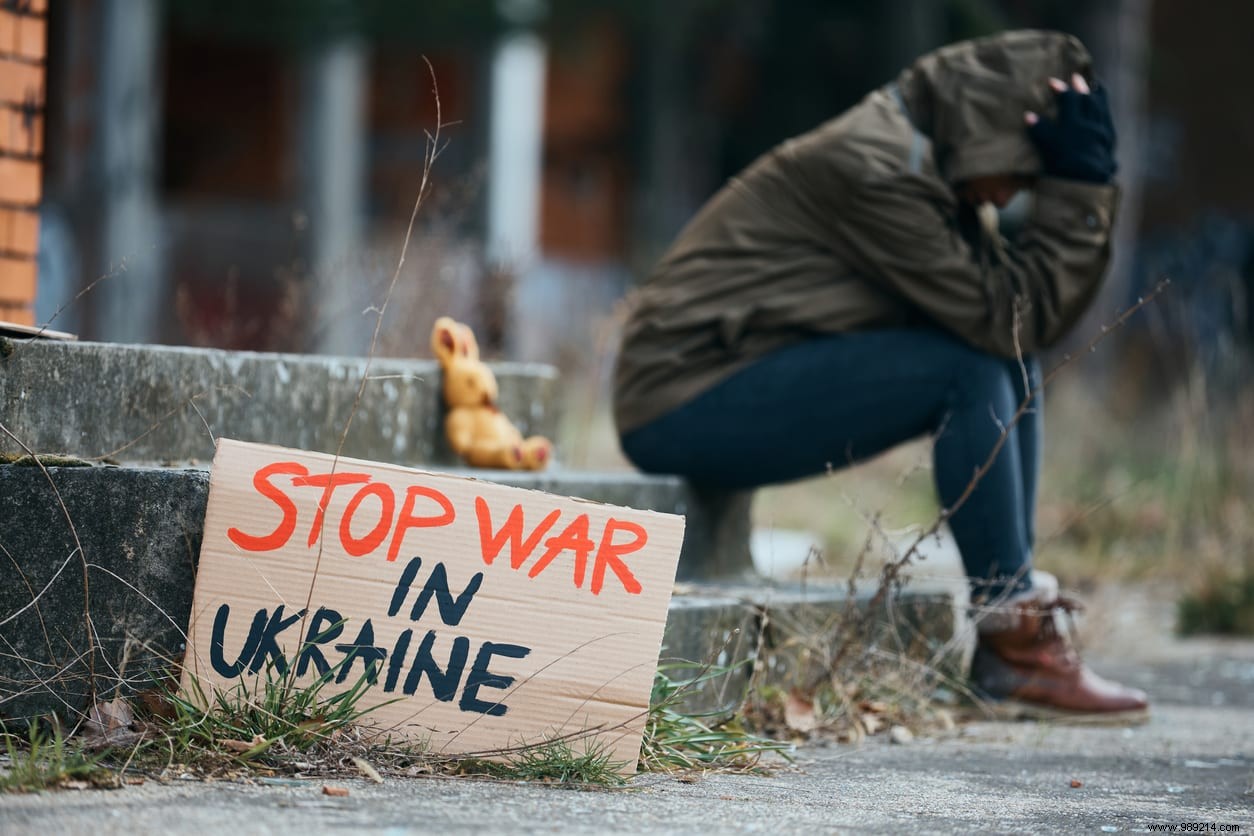Two Welsh psychology specialists recently tested a kind of therapy developed after the September 11, 2001 attacks in the United States. The goal? Dealing with the traumatic psychological effects of the war in Ukraine.
post-traumatic stress disorder (PTSD) are psychiatric disorders occurring after one or more traumatic events. The people affected then experience moral suffering as well as physical complications that can profoundly and lastingly alter their personal, social and professional life. In the treatment department, we find therapies and some are still experimental, such as those based in particular on virtual reality or the famous game Tetris.
In an article from April 19, 2022, the BBC took an interest in the work of Lisa de Rijk and Rhian Price, two Welsh doctors specialists in a treatment developed for United States following the attacks of September 11, 2001. However, the duo recently decided to bring their help to Ukraine, more precisely to local therapists in order to treat the symptoms of post-traumatic stress. "We wanted to show that empowering people in a war-torn country is possible, effective, and can be done with no money, with dedicated volunteers" , said Lisa de Rijk.

The duo brought together a team of eleven specialists from the United Kingdom, Poland and the United States who had received training on the famous treatment called Reconsolidation of Traumatic Memories (or RTM), effective since 2019. The aim here is to reduce the frequency of people's nightmares and flashbacks by separating trauma from memories by means of a reconstruction of the facts in a less violent version. For three days, the eleven specialists intensively trained no less than 28 Ukrainian therapists.
However, the first step was to help these Ukrainian therapists detach themselves from their state of emotional shock due to the war. Ultimately, the training allowed them both to rediscover their identity as professionals and to regain a taste for work with the aim of helping their compatriots. Some specialists have already begun to help, particularly in the east of the country where the experience of war is undoubtedly the most traumatic. The trainers underlined the satisfaction of having been able to transmit their knowledge while the war is still going on.